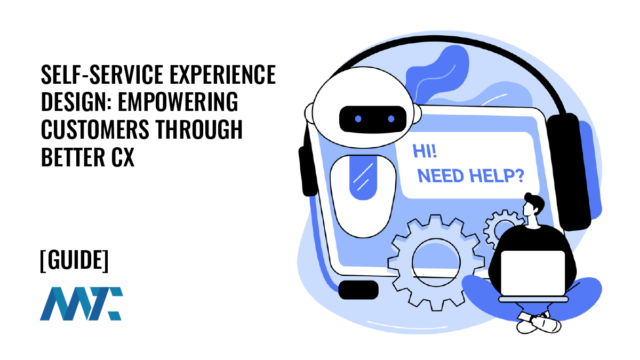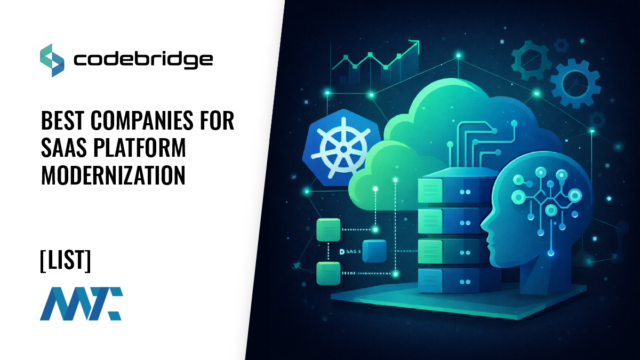Building Your Business on Rock or Sand: The Hidden Cost of Poor Data Integrity

I’m currently a vice president at a fast-growing SaaS company that has achieved over 400% year-over-year growth. Amid that kind of expansion, it would be easy to chase new features, aggressive marketing campaigns, and automation at scale. But instead, the company is making a less glamorous, though far more critical, investment—ensuring that every piece of data we record and process is accurate.
Like most high-growth startups, we don’t have endless resources. Every hour spent refining processes or cleaning data could be spent selling, developing, or marketing. Yet we know from experience that if we don’t make time now to invest in the accuracy and integrity of our systems, we’ll pay a far greater price later. We have to execute effectively today, but we also must build for tomorrow. That means slowing down enough to create order, structure, and reliability beneath the surface, even when it feels like the market is demanding speed above all else.
As veteran SaaS entrepreneurs, we know that bad data eventually hurts every aspect of a business. It clogs systems, distorts analytics, breaks processes, and frustrates both customers and employees. The faster you grow, the more these issues multiply. So we’re doing the hard work now: cleaning data, tightening integrations, and building a foundation that will hold up under pressure. Because the truth is simple—if your company’s data isn’t solid, neither is your future.
The Parable of Building on Rock versus Sand
Everyone then who hears these words of mine and does them will be like a wise man who built his house on the rock. And the rain fell, and the floods came, and the winds blew and beat on that house, but it did not fall, because it had been founded on the rock. And everyone who hears these words of mine and does not do them will be like a foolish man who built his house on the sand. And the rain fell, and the floods came, and the winds blew and beat against that house, and it fell, and great was the fall of it.
Matthew 7:24–27 (ESV)
The parable is still valid. The difference wasn’t visible when the sun was shining and the skies were clear. But when the storm came, one structure stood firm while the other collapsed. In the digital era, many organizations are constructing their futures on sand—weak, unstable foundations of inaccurate, inconsistent, or incomplete data.
When companies fail to invest in data integrity, they are effectively building complex systems, automation workflows, and AI models atop unreliable inputs. The result is not just inefficiency, but compounded, costly errors that ripple through every layer of the business.
The Fragile Foundation of Modern Systems
Modern organizations depend on interconnected systems: CRM platforms feeding into marketing automation, payment processors syncing with accounting software, and customer data informing AI models. Yet, few leaders pause to consider what happens when the foundation beneath all this technology—data—begins to erode.
Data integrity means ensuring that the information driving your business is accurate, complete, consistent, and up to date. It’s not glamorous work. It rarely makes headlines or appears in board presentations. But without it, digital transformation becomes a mirage, a glittering façade over a foundation of sand.
Downstream Failures: The Real-World Cost of Poor Data
When data integrity fails, the damage is rarely confined to one department. Instead, it cascades through the business, often in subtle but devastating ways.
- Missed tasks and broken workflows: When contracts aren’t organized accurately into corresponding projects, tasks slip through the cracks. A single unlinked record can cause entire teams to miss deadlines, deliverables, or renewals. Over time, these inefficiencies multiply, eroding trust with clients.
- Payment and invoicing issues: Poorly maintained payment data, whether outdated billing addresses, expired credit cards, or mismatched records, leads to processing delays, chargebacks, and strained cash flow. The administrative overhead of chasing corrections can far exceed the cost of maintaining clean data upfront.
- Marketing waste and direct mail returns: When customer addresses and profiles aren’t updated, direct mail campaigns can see double-digit return rates. The same happens in digital channels, where ads are served to outdated audiences, wasting media budgets and distorting campaign analytics.
- Search and local visibility decline: A business might invest heavily in SEO yet lose ground because its Google Business Profile (GBP), local listings, and website metadata are inconsistent. When platforms detect conflicting NAP (Name, Address, Phone) data, trust scores drop and visibility suffers.
- AI and analytics distortion: Artificial intelligence and predictive analytics amplify whatever data they are fed. If the data is incomplete or inaccurate, the model’s recommendations become unreliable. Sales forecasts miss the mark, personalization engines misfire, and decision-making suffers from misplaced confidence.
- Legal and compliance exposure: From GDPR to HIPAA to state privacy laws, organizations are required to maintain accurate data records. When customer information is duplicated, lost, or miscategorized, companies face legal risks, compliance failures, and potential fines.
Each of these examples represents a crack in the foundation, one that widens with every new application, integration, or automation layered on top.
The Compounding Cost of Avoidance
Businesses often resist addressing data problems because the issues feel invisible. Cleaning, validating, and maintaining data doesn’t generate immediate revenue, so it’s postponed indefinitely. But over time, this neglect becomes one of the most expensive decisions a company can make.
A company that invests millions in new CDP or ERP systems without cleansing its underlying data is pouring concrete over sand. Every automation that runs, every dashboard that updates, and every decision made on top of that system compounds the original error. When a marketing team can’t rely on contact data, they waste spend. When finance can’t reconcile transactions, they waste time. When operations rely on broken data, they waste opportunity.
And when leadership looks to AI for answers, the model trained on this unreliable data confidently delivers wrong conclusions, faster and at scale.
Data Integrity as Bedrock
The organizations that thrive in the digital age understand that true transformation begins beneath the surface. They treat data not as a byproduct but as an asset, something to be structured, cleaned, and maintained with the same rigor as any physical infrastructure.
That begins with practical, repeatable processes:
- Auditing existing data: Identify inaccuracies, duplicates, and inconsistencies across systems.
- Establishing data governance: Assign ownership and accountability for data quality across departments.
- Standardizing formats and sources: Align how data is collected, labeled, and stored.
- Automating validation and updates: Use automation tools to detect stale or invalid entries.
- Prioritizing integration accuracy: Ensure systems are syncing bidirectionally with real-time validation, not just scheduled batch imports.
When organizations adopt this mindset, digital transformation (DX) projects become more sustainable, AI models deliver reliable insights, and the business can grow with confidence.
The Storm Always Comes
Digital transformation promises growth, speed, and innovation, but only when the foundation is solid. Businesses that ignore data integrity may appear stable during good times, but they are perpetually vulnerable to disruption. Whether it’s a missed payment, a failed campaign, a delayed migration deadline, or an AI-driven misjudgment, the storm always comes.
I read a lot about businesses struggling with the results of their DX or AI today, and I would be willing to bet they had systemic data issues that were never corrected. Building your business on data rock, strong, structured, and dependable, requires patience and investment. But when the winds of change arrive, that’s the only foundation that stands firm.







